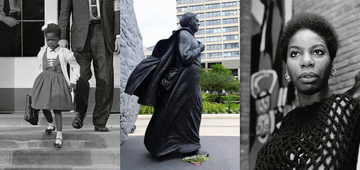- 10 April 2025
New pilot research from the Royal Society for Public Health (RSPH) shows that parents, carers and professionals want more information about vaccines to make informed decisions about their family’s health.
The report, ‘Building a path to trust: parents, carers, communities and healthcare professionals’ experiences of the children’s vaccine programme’, surveyed 142 parents, carers, volunteers and healthcare and educational professionals in the London Borough of Tower Hamlets about their experiences and perceptions of vaccines.
The report revealed that:
- Participants want more vaccine promotion that is culturally competent and delivered in a way that makes sense for communities and their traditions.
- Parents and carers want to be given information before their children’s vaccine appointments are due.
- There is an appetite for information to cover all aspects of vaccinations, from research and development to what to do if side effects occur.
- Participants want places where they can ask questions without time constraints.
The report calls for local authorities, NHS providers and local communities to work together to ensure parents have a place to go to have their questions about vaccinations answered.
It emphasises the importance of bringing information to local places, for example in schools, libraries, or drop-in sessions with GPs.
The publication of the report comes against a backdrop of concerning data around falling vaccine uptake in England.
In 2023-24, over 100,000 children remained unprotected against measles, mumps and rubella in England. Over 30,000 of these children lived in London.
Over 51,000 children did not get their 6-in-1 vaccination when they turned one year old. This is more people than the entire population in the city of Durham.
In 2023-24, no Local Authority met the 95% target for 2 doses of MMR.
William Roberts FRSPH, Chief Executive, Royal Society for Public Health, said:
“This new RSPH research carried out in Tower Hamlets highlights that most communities want to know more about vaccines, but they also want time to reflect on their learnings and to feel empowered to make decisions about their family’s health. Rather than being offered vaccines in rushed appointments with their already stretched GP, they want to be able to ask more questions and make informed decisions in their own time.
“In short, they want us to make it easier for them to make this choice from a position of power, rather than simply being expected to turn up and get jabbed. Children’s immunisations are central to disease prevention and to tackling health inequalities. And to tackle these effectively, we must design services that consider people’s experiences, needs and concerns. We must make healthy choices easy choices. Communities have told us what they need; now we and vaccine providers must use the research findings to ensure that it is easy for everyone to make the healthy choice when it comes to vaccinating their children.”
MSD UK Limited (a subsidiary of Merck & Co., Inc., Kenilworth, N.J., USA (NYSE: MRK)) has funded this project and has had no editorial input into the content.



